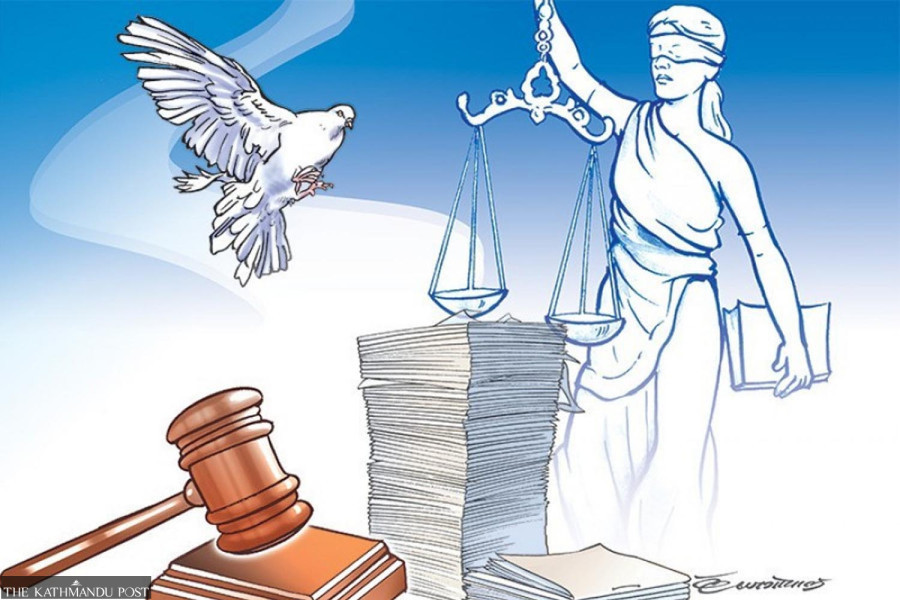Editorial
Hold the line
Laws must be defended unless there is a clear legal or constitutional reason to change them.
On July 7, the Nepal Medical Council, the umbrella body of medical doctors, shut down non-emergency medical services across the country, protesting against the Consumer Court verdicts. The court had slapped hefty fines on three private hospitals and doctors, finding them guilty of negligence, which resulted in patients’ health complications and even deaths. Expressing their disagreement, agitated doctors demanded “necessary revisions” to the Consumer Act. The government complied on July 18 by swiftly forming a three-member panel to proceed with the amendment. But, in doing so, the government not only yielded to an interest group but also undermined the court’s accountability and patients’ rights to seek legal redress.
Unfortunately, this is not an isolated incident. Even in 2018, under pressure from doctors, the government amended section 232 of the criminal code within months of its enactment. Likewise, different interest groups have long intervened in the jurisdiction of Nepal’s sovereign parliament or the executive. In June, when the central struggling committee of public transport operators disrupted services in response to the Gandaki province’s introduction of a ride-hailing policy—Ride-Hailing (Regulation and Management) Guideline, 2025—the federal government decided to suspend the regulation for a month. (The Supreme Court later ordered its implementation.) Concomitantly, the amendment of the Nepal Police Act has yet to see the light of day, as some of its provisions were not to the liking of the police force. Similarly, even after a month-long protest, the School Education Bill is on hold as it has not served the interests of the Nepal Teachers’ Federation.
These instances put a question mark on the integrity of parliamentary democracy of Nepal. Interfering in the legislative matters risks eroding the authority of parliament. Yet our political leadership also lacks the moral standing to say “no” to interest groups, as it is often more inclined to serve them than the electorate. We only need to look at the recent controversy over a sub-clause of the Federal Civil Service Bill: The bill, without any discussion and examination, was passed, and only later was it discovered that the passed version had been subtly altered. When the legislature loses its moral uprightness, it only emboldens the interest groups. In the case of the agitating doctors, they had every right to seek legal recourse against the Consumer Court verdicts. But they didn’t just choose to punish patients but also proposed amendments to the Consumer Act. This is where the government must intervene. Repeatedly revising and tailoring laws in favour of specific parties, or doing so without necessity, will do more harm than good.
Additionally, there is a problem of excluding relevant stakeholders while preparing laws. Lawmaking is effective when experts and concerned individuals participate, negotiate and discuss—without these, the essence of any law is compromised. So it is up to the government to ensure that lawmaking is inclusive and laws are formed only after rigorous discussions. And once enacted, laws must be defended unless there is a clear legal or constitutional reason to change them. Nepal’s parliamentary democracy will fail if authorities keep yielding to such interest groups.




 10.12°C Kathmandu
10.12°C Kathmandu













